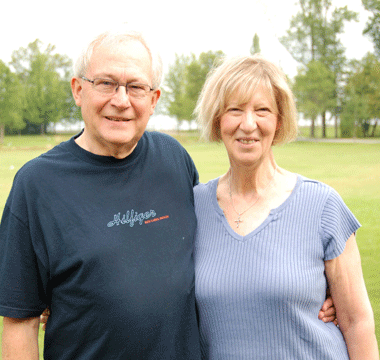 At the beginning of September my husband, Robert, and I had the marvellous “deja vu” experience of sharing at the Territorial School of Music and Gospel Arts at Jackson's Point Camp and Conference Centre in Ontario. Some 160 students aged 16-30 came from almost all parts of the territory, with a few students from other territories, also. The overseas students arrived the day prior to camp, as did the faculty. (A special joy for me was the fact that a good number of the faculty had been students at the camp themselves, at some point between 1976 and 1984, during which time Robert and I had been the directors of the camp. And now it was their children who were the students!)
At the beginning of September my husband, Robert, and I had the marvellous “deja vu” experience of sharing at the Territorial School of Music and Gospel Arts at Jackson's Point Camp and Conference Centre in Ontario. Some 160 students aged 16-30 came from almost all parts of the territory, with a few students from other territories, also. The overseas students arrived the day prior to camp, as did the faculty. (A special joy for me was the fact that a good number of the faculty had been students at the camp themselves, at some point between 1976 and 1984, during which time Robert and I had been the directors of the camp. And now it was their children who were the students!)
A happy serendipity was the fact that the only student from the United Kingdom was a 16-year-old horn player called Sara Parker. She was from Worthing, a seaside town on the south coast where Robert and I were due to be the guests for the band's 125th anniversary reunion week-end, to be held the weekend following the conclusion of the camp.
“The Worthing Connection” provided for me a snapshot of the fact that while recent years have seen the demise of corps bands in several locations, in some senses and places, The Salvation Army banding scene is healthier than it has ever been.
Robert and I arrived in Canada on July 21st 1976, with our two young daughters. We were thrown in at the deep end in that our first major responsibility was the directorships of “National.” The camp has held a special place in our hearts ever since. However, while we were thrilled with the talent shown by the students of the day, we were concerned with the lack of spiritual maturity of many of them, and the fact that the programming of the camp did not provide a holistic approach to becoming a Salvationist musician.
At the faculty de-briefing session it was decided that the following year the camp program should include small group Bible studies in an attempt to provide growth opportunities. It was also decided that it would be helpful for there to be a theme chorus to help introduce the concept and so “One Life to Live” was born, and has since become the Redheads' theme song.
What a joy it is for us now to see the way that “National” has continued to evolve in the intervening years, broadening mainstream choices to include drama and worship team tracks, acknowledging the wide range of creative arts that God has given to his church. But we are also delighted to see that every day now begins with 45 minutes Bible teaching in the auditorium, with opportunity for there to be small group discussions later, relating the teaching to the lives of the students. We were part of a group of nine girls, all instrumentalists, and we were moved by the depth of sincerity with which they explored the topics each day.
But, back to the Worthing Connection…
We caught glimpses of Sara throughout the week and she seemed quite at home in a Canadian context. And when we asked if she would be willing to share at the Worthing Band Reunion week-end how her National experience had affected her approach to banding she readily agreed.
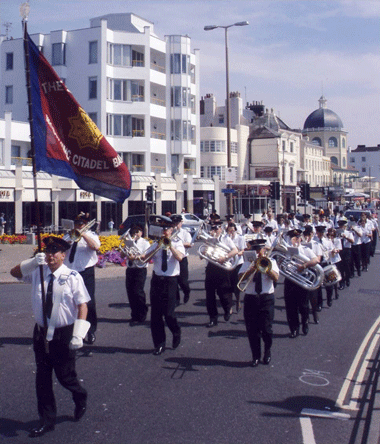 In our preparation for the Worthing weekend we felt it would be appropriate to remind the congregation that banding had become part of the Salvation Army scene in the first place because of a “God-incidence.” The Fry family, who came to the aid of early Salvationists being harassed on the streets of Salisbury, England, just “happened” to be brass players. I had planned to tell the story of 16 year old Tommy, the drummer boy who had been stoned to death on the streets of Folkestone, by the Skeleton Army. However, as I read the history of the Salvation Army band in Worthing, I realised that they, too, had faced great opposition in the early days of their witness in the town, and used local illustrations instead. How interesting, then, that 125 years later the Mayor was glad to be in attendance at the celebrations and to express appreciation, on behalf of the town, for the ministry of the band, which is now regarded as “the town band”, yet also recognizing that banding is only one aspect of the multi-facetted services to the community provided by the corps, with the bandmaster as the Community Services Director.
In our preparation for the Worthing weekend we felt it would be appropriate to remind the congregation that banding had become part of the Salvation Army scene in the first place because of a “God-incidence.” The Fry family, who came to the aid of early Salvationists being harassed on the streets of Salisbury, England, just “happened” to be brass players. I had planned to tell the story of 16 year old Tommy, the drummer boy who had been stoned to death on the streets of Folkestone, by the Skeleton Army. However, as I read the history of the Salvation Army band in Worthing, I realised that they, too, had faced great opposition in the early days of their witness in the town, and used local illustrations instead. How interesting, then, that 125 years later the Mayor was glad to be in attendance at the celebrations and to express appreciation, on behalf of the town, for the ministry of the band, which is now regarded as “the town band”, yet also recognizing that banding is only one aspect of the multi-facetted services to the community provided by the corps, with the bandmaster as the Community Services Director.
And Sara provides living evidence of the way that banding at the Worthing Corps is looking to the future as well as the past. It was a joy, not only to see her participating in the Saturday evening concert, but also at lunch-time the following day, playing newer upbeat worship songs with the band in their regular spot in the centre of a pedestrianised shopping precinct. Sunday shoppers were only too glad to take a break from their pastime to sit and listen to the gospel being shared in a relevant and attractive way. And on Sunday evening, Sara also participated in “the training Band”, an open group for those young and old wishing to learn a brass instrument in a context that allows for spiritual mentoring as well – another sign of health in what is sometimes seen as a traditional, dated and irrelevant expression of Salvationism. But most of all, it was moving to hear Sara speak of the way God had impacted her life during “National”, and of her desire to live the one life God has given her, to continue to grow in her faith and to share that faith with others, with her musical talent as the medium, on occasion.
Not on a “Worthing Connection,” but a “worthy connection,” don't you think?
Top photo: Colonels Redhead at the Territorial Music Camp; bottom: The Worthing Corps Band on the march
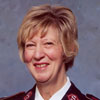 Colonel Gwenyth Redhead is a retired Salvation Army officer. She and her husband, Robert, have held a wide variety of appointments in the United Kingdom, Canada and New Zealand. However, her passion has always been to encourage others in creative responses to God through writing of scripts, stories, articles and lyrics (mostly to Robert's music). She has two daughters, Joanne and Corinne, and rejoices that they, too, use the creativity God has given them in ministry.
Colonel Gwenyth Redhead is a retired Salvation Army officer. She and her husband, Robert, have held a wide variety of appointments in the United Kingdom, Canada and New Zealand. However, her passion has always been to encourage others in creative responses to God through writing of scripts, stories, articles and lyrics (mostly to Robert's music). She has two daughters, Joanne and Corinne, and rejoices that they, too, use the creativity God has given them in ministry.




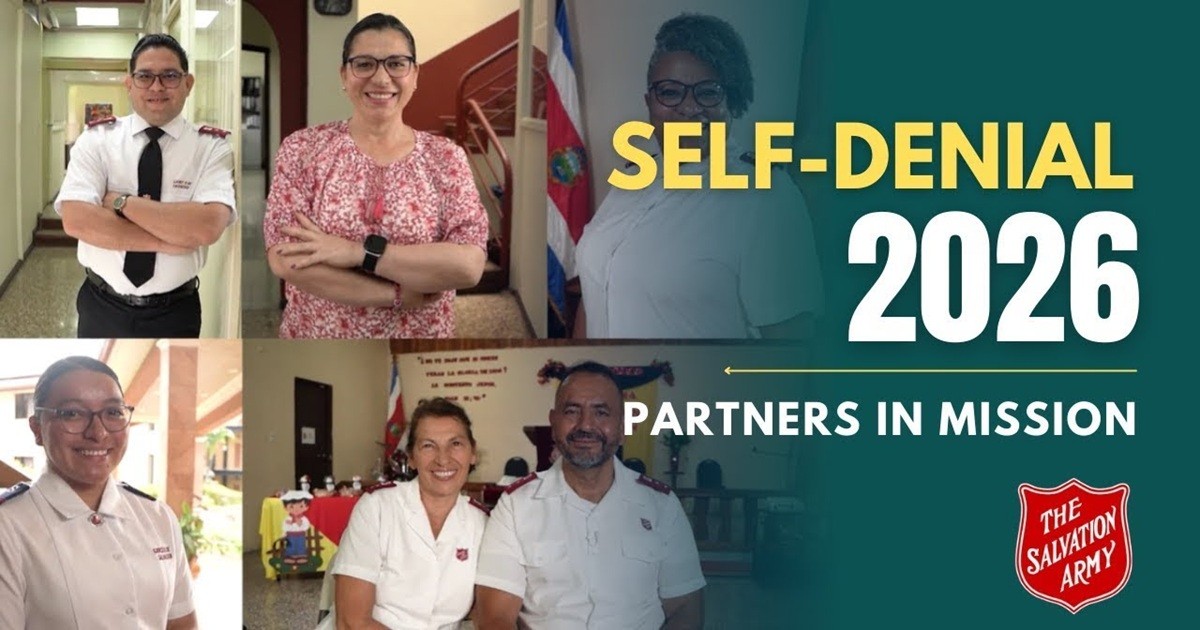

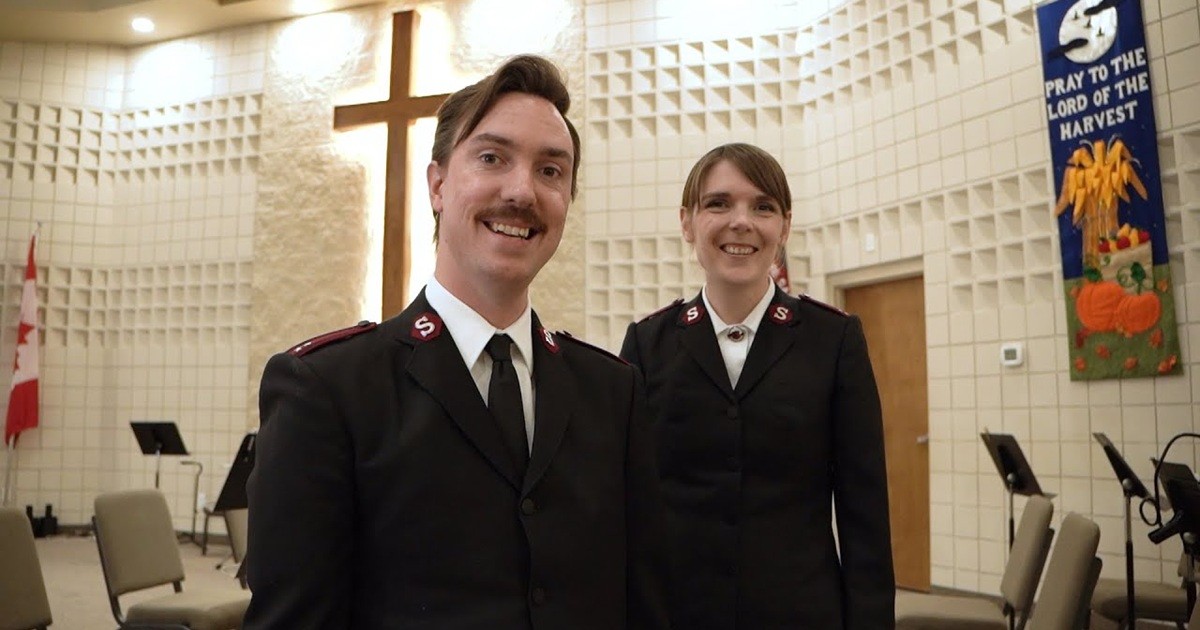


Comment
On Friday, October 9, 2009, Richard Van Schaick said:
Leave a Comment